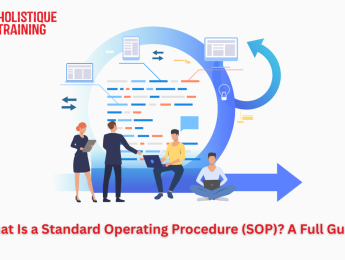- Table of Contents
- Introduction
- What Is Corporate Governance?
- Types of Corporate Governance
- Anglo-American Model
- Continental European Model
- Asian Model
- Family-Owned Model
- Which Type of Corporate Governance Applies to My Organisation?
- Legal and Regulatory Requirements
- Ownership Structure
- Cultural Norms
- Stakeholder Expectations
- Industry and Sector
- When to Take a Look at Your Corporate Governance System
- 1. Significant Organisational Changes
- 2. Regulatory Changes
- 3. Financial Distress or Scandals
- 4. Board Composition and Diversity
- Role of Internal Auditing in Corporate Governance
- Risk Assessment
- Compliance Verification
- Process Improvement
- Fraud Detection
- Ethical Compliance
- The Future of Corporate Governance
- 1. ESG Integration
- 2. Stakeholder Orientation
- 3. Technological Advancements
- 4. Board Effectiveness and Accountability
- Conclusion
Introduction
Corporate governance is a fundamental aspect of modern business operations. It encompasses a complex system of rules, practices, and processes that guide the decision-making and accountability of organisations. Effective corporate governance ensures transparency, integrity, and ethical behaviour, ultimately fostering stakeholder trust and long-term sustainability. In this comprehensive blog post, we will delve into the various types of corporate governance, explore their distinguishing features, and examine their significance in today's dynamic business landscape. Furthermore, we will discuss when to evaluate your corporate governance system, the role of internal auditing, and the future trends in corporate governance.
What Is Corporate Governance?
Corporate governance refers to the mechanisms and structures that dictate how corporations are directed, controlled, and managed. It serves as a framework for establishing relationships and delineating responsibilities among shareholders, boards of directors, executives, employees, and other stakeholders. The primary objective of corporate governance is to optimise organisational performance while safeguarding the interests of all stakeholders.
In today's complex global business environment, corporate governance has evolved significantly. Several distinct models of corporate governance have emerged, each with its unique features, values, and priorities. Let's delve into the different types of corporate governance:
Types of Corporate Governance
Anglo-American Model
The Anglo-American model, prevalent in the United States and the United Kingdom, is characterised by its emphasis on maximising shareholder value. It places substantial importance on protecting shareholders' interests, ensuring transparency, and utilising market forces to enhance corporate performance. This model typically advocates for a separation of ownership and control, focusing on independent directors, shareholder activism, and strong shareholder rights.
Key Features
- Emphasis on shareholder value: The Anglo-American model prioritises the interests of shareholders above all else. The goal of maximising shareholder wealth drives corporations.
- Independent directors: The presence of independent directors on boards is common in this model to ensure unbiased decision-making and oversight.
- Shareholder activism: Shareholders are encouraged to participate actively in corporate governance, voice concerns, and influence company decisions.
- Strong shareholder rights: Shareholders in this model typically have well-defined rights and mechanisms for redress if their rights are violated.
Continental European Model
The Continental European model, observed in countries like Germany, France, and the Netherlands, takes a more comprehensive approach to corporate governance. It considers the interests of a broader range of stakeholders beyond shareholders, including employees, customers, suppliers, and the local community. This model emphasises long-term relationships, collective decision-making, and board employee representation, aiming to balance competing stakeholder interests.
Key Features
- Stakeholder-oriented: The Continental European model recognises the importance of various stakeholders, not just shareholders. It seeks to balance their interests and foster long-term relationships.
- Collective decision-making: Decision-making is often more collaborative, involving various stakeholders, including employees and labour unions.
- Employee representation: This model may include employee representation on boards, ensuring their voices are heard in corporate decision-making.
- Long-term focus: There is an emphasis on the long-term sustainability and stability of the organisation, rather than short-term profits.
Asian Model
The Asian model, prominent in countries such as Japan and South Korea, reflects these regions' unique cultural and economic context. This governance approach's key tenets are stability, harmony, and long-term relationships. It places a significant emphasis on the role of banks and financial institutions in corporate governance, ensuring stability and promoting long-term decision-making. Interlocking directorates, where board members serve on multiple boards, are also prevalent in this model.
Key Features
- Stability and harmony: Asian corporate governance values stability and long-term relationships, seeking to avoid conflicts that disrupt business operations.
- Role of banks and financial institutions: These institutions ensure financial stability and promote long-term corporate decision-making.
- Interlocking directorates: Board members often serve on multiple boards, fostering interconnected relationships and facilitating collaboration in the business community.
- Emphasis on consensus: Decision-making in the Asian model often involves reaching a consensus among stakeholders to maintain harmony.
Family-Owned Model
Family-owned businesses are widespread globally and often adopt a distinctive governance model. There were 5.5 million family businesses in the US alone in 2011, according to GVSU, which is definitely on the rise. Not only that, but recent statistics also show that family-owned enterprises contribute significantly to the U.S. economy, comprising 64 per cent of the gross domestic product, providing jobs for 62 per cent of the workforce, and spearheading 78 per cent of new job opportunities. This model concentrates ownership and control within a single family or a small group of shareholders. Family-owned companies prioritise long-term commitment, preserving the founder's vision, and maintaining a strong sense of identity. However, this model can present challenges related to transparency, succession planning, and managing conflicts of interest within the family dynamic.
Key Features
- Concentrated ownership and control: Ownership typically remains within a family or a small group, leading to a more centralised decision-making structure.
- Long-term commitment: Family-owned businesses often prioritise the company's long-term success and seek to preserve the founder's legacy.
- Identity and tradition: These companies often have a strong sense of identity and tradition, which can be a source of strength and stability.
- Challenges of succession: Succession planning can be a complex issue in family-owned businesses, as it involves managing conflicts and ensuring a smooth transition to the next generation.
Country | Corporate Governance Index Score | Key Strengths |
USA | 82.4 | Shareholder Rights, Transparency, Regulatory Compliance |
Germany | 76.9 | Board Accountability, Stakeholder Engagement, Ethical Practices |
Japan | 74.2 | Long-term Focus, Investor Protection, Corporate Social Responsibility |
UK | 80.1 | Independent Directors, Market Transparency, Disclosure Standards |
Netherlands | 78.5 | Shareholder Activism, Board Diversity, Sustainable Business Practices |
Table 1: Global Corporate Governance Index
Which Type of Corporate Governance Applies to My Organisation?
Determining the most suitable type of corporate governance for an organisation requires a thoughtful analysis of various factors, including legal and regulatory requirements, cultural norms, ownership structure, and stakeholder expectations. Organisations must thoroughly assess their unique circumstances, goals, and values, aligning their chosen governance model with the diverse interests of their stakeholders. Customisation and adaptation may be necessary to tailor the governance approach to the organisation's specific needs.
Consider the following factors when determining the most suitable corporate governance model for your organisation:
Legal and Regulatory Requirements
Different countries have varying legal and regulatory frameworks governing corporate governance. Ensure that your organisation complies with your jurisdiction's applicable laws and regulations.
Ownership Structure
Your organisation's ownership structure can significantly influence the type of governance model that is most appropriate. For example, family-owned businesses may naturally gravitate toward a family-owned model.
Cultural Norms
The cultural context in which your organisation operates can impact governance preferences. Understanding the cultural values and expectations of stakeholders is crucial.
Stakeholder Expectations
Different stakeholders, including shareholders, employees, customers, and the community, may have distinct expectations regarding corporate governance. It is essential to consider and balance these expectations.
Industry and Sector
The industry in which your organisation operates can also influence the most suitable governance model. For example, industries with high regulatory scrutiny may require a more robust framework.
When to Take a Look at Your Corporate Governance System
Regular evaluation and review of the corporate governance system are crucial to maintaining its effectiveness. Consider the following scenarios that warrant a close examination of your organisation's governance practices:
1. Significant Organisational Changes
Mergers, Acquisitions, or Changes in Ownership Structure
Mergers and acquisitions (M&A) are transformative events that can reshape the entire corporate landscape. When two companies merge, or one acquires another, cultures, processes, and governance practices are fused. It becomes imperative to reassess and align the governance framework with the new dynamics. The same applies when there are changes in ownership structure, such as introducing a new majority shareholder. In these scenarios, stakeholders may have different expectations and interests that must be integrated into the existing governance model. Companies can maintain stakeholder confidence and avert potential conflicts by ensuring alignment with the new organisational structure.
2. Regulatory Changes
Adapting to Evolving Laws, Regulations, and Industry Standards
The legal and regulatory landscape governing corporate governance is constantly evolving. Changes in laws and regulations can significantly impact governance requirements, necessitating organisations to adapt swiftly. Compliance is not just a legal obligation; it is also crucial for maintaining reputation and trust among stakeholders. Regular updates on legal requirements and industry standards are essential to avoid legal complications and financial liabilities. Companies must invest in robust legal counsel and stay informed about emerging governance challenges, ensuring their practices are always in line with the latest regulatory expectations.
3. Financial Distress or Scandals
Identifying Weaknesses and Implementing Corrective Measures
Instances of financial misconduct, fraud, or corporate scandals serve as red flags, signalling deep-rooted governance issues within an organisation. These incidents can erode trust among stakeholders, damage reputation, and lead to legal consequences. When faced with such challenges, organisations must comprehensively review their governance mechanisms. This evaluation allows the identification of weaknesses or gaps in the existing system, enabling the implementation of corrective measures. Establishing stringent internal controls, enhancing transparency, and reinforcing ethical conduct are vital to rebuilding trust and credibility. Additionally, a thorough review can help organisations establish mechanisms to prevent future occurrences and instil a culture of integrity and compliance.
4. Board Composition and Diversity
Ensuring an Effective and Diverse Board of Directors
The composition of the board of directors plays a pivotal role in shaping corporate governance effectiveness. An ineffective or non-diverse board can hinder decision-making, oversight, and the ability to address complex challenges. Regular evaluation of the board's composition is essential to ensure it reflects a diverse mix of skills, expertise, independence, and perspectives necessary for effective governance. Diversity, not only in terms of gender but also in terms of professional background, ethnicity, and experience, enhances the board's ability to make well-informed strategic choices. Boards should proactively assess their members, encouraging continuous self-evaluation and skill enhancement. By fostering diversity and inclusivity, boards can navigate challenges more effectively and represent the interests of a wider range of stakeholders.
In summary, organisational governance is a dynamic process that requires constant vigilance and adaptation. By recognising pivotal moments that demand a reassessment of corporate governance practices, organisations can fortify their foundations, enhance stakeholder trust, and position themselves for sustainable growth and success in the competitive business landscape. Regular introspection and adjustment of governance mechanisms are not just signs of a responsible organisation; they are essential strategies for ensuring long-term viability and ethical conduct.
Role of Internal Auditing in Corporate Governance
Internal auditing plays a pivotal role in promoting effective corporate governance practices. Internal auditors act as independent evaluators, assessing the organisation's internal control systems, risk management processes, and compliance with laws, regulations, and ethical standards. Their contributions are instrumental in identifying weaknesses, improving processes, and enhancing the overall effectiveness of corporate governance practices. Internal auditors provide valuable insights and recommendations that facilitate informed decision-making, risk mitigation, and continuous improvement.
Internal Auditing Functions in Corporate Governance:
Risk Assessment
Internal auditors assess the organisation's risk exposure, helping the board and management identify and prioritise risks that may impact achieving objectives.
Compliance Verification
Internal auditors ensure that the organisation complies with relevant laws, regulations, and internal policies, reducing the risk of legal and regulatory issues.
Process Improvement
By evaluating internal processes, internal auditors identify inefficiencies and recommend improvements, enhancing operational effectiveness and efficiency.
Fraud Detection
Internal auditors are equipped to detect signs of fraud within the organisation, providing a vital line of defence against financial misconduct.
Ethical Compliance
Internal auditors assess the organisation's adherence to ethical standards and codes of conduct, promoting a culture of integrity and ethical behaviour.
The Future of Corporate Governance
Corporate governance continually evolves to address emerging trends, challenges, and stakeholder expectations. Several key factors are likely to shape the future of corporate governance:
1. ESG Integration
Environmental, social, and governance (ESG) considerations are gaining traction as fundamental elements of corporate governance. As climate change and social responsibility become increasingly prominent global concerns, organisations are pressured to integrate ESG factors into their decision-making processes. Beyond merely complying with regulations, businesses are now expected to demonstrate a genuine commitment to sustainable practices. ESG integration mitigates risks associated with environmental and social issues and opens doors to new opportunities, enhances reputation, and fosters investor and stakeholder confidence. Companies that proactively embrace ESG principles are better positioned to navigate the complexities of a socially conscious market, ensuring long-term viability while contributing positively to the planet and society.
2. Stakeholder Orientation
The traditional paradigm of prioritising shareholders above all else gradually gives way to a more balanced and inclusive approach that considers the interests of diverse stakeholders. Acknowledging the significance of employees, customers, suppliers, communities, and the environment alongside shareholders is becoming paramount. Organisations recognise that sustainable success is intricately linked to all stakeholders' well-being. Embracing a stakeholder-oriented approach fosters social responsibility, cultivates a positive organisational culture, strengthens stakeholder relationships, and enhances overall corporate reputation. By championing the interests of a wider array of stakeholders, companies can establish enduring partnerships, drive innovation, and create shared value that resonates with society at large.
3. Technological Advancements
The rapid evolution of technology continues to reshape the corporate governance landscape. Artificial intelligence, blockchain, data analytics, and other innovative technologies are revolutionising business operations, offering unprecedented opportunities for efficiency and growth. However, these advancements also bring unique challenges, such as data privacy concerns, cybersecurity threats, and ethical dilemmas related to algorithmic decision-making. Corporate governance frameworks must adapt to harness the benefits of these technologies while addressing associated risks. Transparency, accountability, and ethical use of data and algorithms are crucial in building and maintaining stakeholder trust. Organisations leveraging technology while upholding ethical standards are poised to gain a competitive edge, drive innovation, and enhance operational resilience in an increasingly digitised world.
4. Board Effectiveness and Accountability
The role of corporate boards is undergoing a profound transformation in response to changing governance expectations. Boards are now expected to be more diverse, independent, and accountable. Transparent communication, proactive risk oversight, and robust ethical practices are becoming non-negotiable attributes of effective boards. Boards must possess the necessary skills and expertise and commit to aligning with the organisation's purpose and strategic goals. Establishing a culture of accountability and responsibility within the boardroom is essential for fostering stakeholder trust and confidence. In the future, boards prioritising inclusivity, ethical decision-making, and strategic foresight will be pivotal in guiding organisations through complex challenges, ensuring sustainability, and promoting long-term success.
In summary, the future of corporate governance is marked by a shift towards responsible, inclusive, and technologically adept practices. Embracing ESG principles, considering the interests of diverse stakeholders, navigating technological advancements, and enhancing board effectiveness are key imperatives for organisations aspiring to thrive in the evolving business landscape. By embracing these principles and adapting proactively, companies can pave the way for ethical conduct, sustainable growth, and enduring success in the dynamic world of corporate governance.
Conclusion
Corporate governance is the foundation for ethical conduct, responsible decision-making, and sustainable organisational growth. Understanding the different types of corporate governance and their characteristics enables companies to navigate the complexities of governance frameworks. By embracing principles of transparency, accountability, and ethical behaviour, organisations can foster stakeholder trust and create a solid foundation for long-term success in a rapidly evolving business landscape.
By keeping pace with the evolving landscape of corporate governance, organisations can not only meet their stakeholders' expectations and thrive ethically and sustainably. As we move forward, businesses need to embrace these changes, ensuring that their governance practices are compliant and reflective of their commitment to creating value for society as a whole. Explore our course ‘Recovering from Challenges as a Government Agency’ to gain the essential insights and strategies needed to navigate and triumph over the most demanding governance challenges. Don't miss the opportunity to lead your agency towards a brighter future! Enrol now or contact us for more information.
























